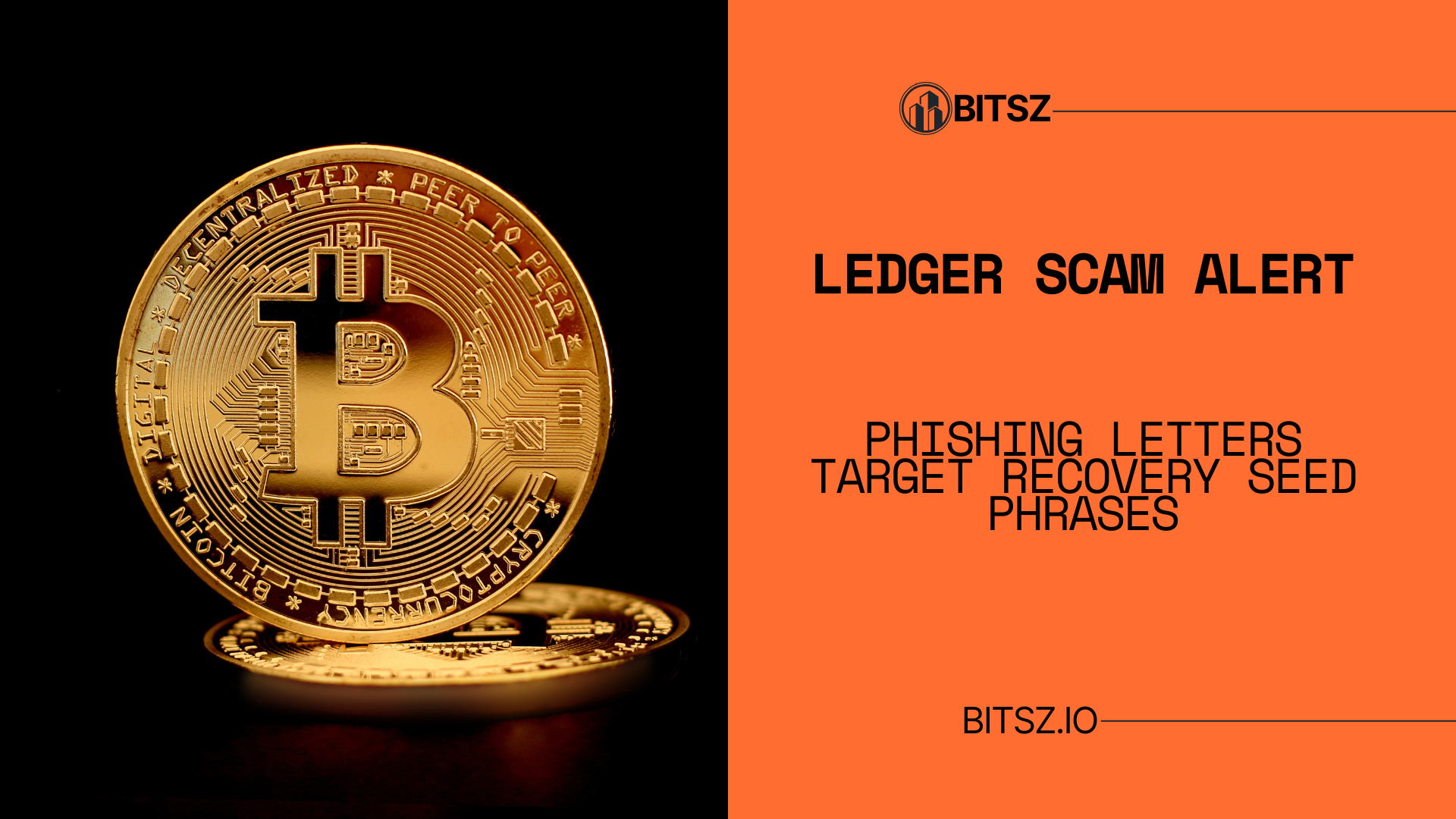
Cryptocurrency hardware wallet provider Ledger has issued a critical security alert after discovering a sophisticated phishing scam targeting users via fake letters. Scammers are impersonating Ledger’s customer support to steal recovery seed phrases, the 12- or 24-word codes that grant full access to crypto wallets. This article details the scam, its implications, and how users can protect themselves from falling victim.
The Scam Unveiled: How It Works
Phishing Letters Pose as Ledger Support
Attackers are sending physical and digital letters to Ledger users, claiming issues with their devices or accounts. The messages urge recipients to:
- Call a “support” phone number.
- Visit a fraudulent website to “verify” their account.
- Share their recovery seed phrases or PIN codes.
Why Recovery Seeds Are a Target
- Unrecoverable Access: Seed phrases are the sole keys to crypto assets. If stolen, attackers can drain wallets permanently.
- No Recovery Option: Ledger and other wallets cannot reset seeds, meaning victims lose funds irretrievably.
Example of a Fake Letter
A user reported receiving a letter stating:
“Your Ledger device has been flagged for security updates. Please contact our support team at +1-800-XXX-XXXX to reset your device and avoid permanent lockout.”
The included website URL closely resembled Ledger’s official domain but contained typos (e.g., Ledg3r.com).
Ledger’s Response and Warnings
Official Statements
Ledger has emphasized:
- Never Share Seeds: The company never asks for recovery phrases, PINs, or passwords.
- No “Urgent” Calls: Legitimate support never demands immediate action via unsolicited calls.
- Verify Contact Methods: Only use Ledger’s official website or approved customer service channels.
Global Impact
- Over 1,000 Reports: Ledger received complaints from users in the U.S., Europe, and Asia.
- Losses Estimated at $2M: Victims have reported stolen funds ranging from $500 to $100,000.
How to Protect Yourself
1. Recognize Red Flags
- Urgent Threats: Scammers pressure victims to act immediately.
- Unsolicited Contact: Legitimate Ledger support only reaches out via users’ registered email/phone.
- Fake URLs: Check links for typos or misspellings (e.g., “Ledg3r” instead of “Ledger”).
2. Secure Your Recovery Seed
- Keep It Offline: Store seeds in a secure physical location, not on phones or computers.
- Avoid Sharing: Never disclose seeds to anyone, even if they claim to be support staff.
3. Verify Ledger’s Official Channels
- Website: Only use ledger.com.
- Support: Contact via [email protected] or their official app.
4. Report Suspicious Activity
- Ledger’s Abuse Team: Report scams to [email protected].
- Local Authorities: File a police report for financial fraud.
The Broader Crypto Security Crisis
Phishing Dominates Crypto Attacks
- 2023 Data: Phishing accounted for 45% of crypto-related hacks, causing $1.2 billion in losses (Chainalysis Report).
- Hardware Wallets as Targets: Scammers increasingly focus on compromising physical devices through social engineering.
Why Seed Phrases Are the “Golden Key”
- Irreplaceable Access: Unlike passwords, seed phrases cannot be reset.
- Total Control: A stolen seed phrase allows attackers to bypass device PINs or biometrics.
FAQ: Protecting Your Ledger Wallet
Q1: What should I do if I received a suspicious letter?
- Do Not Respond: Ignore calls or links. Delete the message.
- Report It: Alert Ledger and your local authorities.
Q2: Can Ledger recover my funds if scammers steal my seed?
- No: Ledger cannot access your wallet or recover funds. Seed phrases are user responsibility.
Q3: Are email phishing attempts common?
- Yes: Scammers use emails, SMS, and fake websites to mimic Ledger’s branding.
Q4: How do I check if a support request is legitimate?
- Initiate Contact Yourself: Visit Ledger’s official site to reach support, rather than using provided links.
Q5: Is my Ledger device vulnerable if I haven’t shared my seed?
- No: Devices remain secure unless seeds or PINs are compromised.
Industry Reactions and Future Measures
Ledger’s Security Enhancements
- Educational Campaigns: The company is launching ads and social media alerts to warn users.
- Two-Factor Authentication (2FA): Encouraging users to enable 2FA for account access.
Regulatory Push for Crypto Security
- SEC Crackdown: U.S. regulators are targeting phishing groups under the Anti-Money Laundering (AML) Act.
- EU’s MiCA Framework: Mandates stricter security standards for hardware wallets.
Conclusion: Vigilance Is Key
The Ledger phishing scam underscores the critical need for user education in crypto security. While hardware wallets like Ledger are inherently secure, attackers exploit human vulnerability through social engineering. By remaining cautious, verifying all communications, and safeguarding seed phrases, users can avoid falling victim to these schemes. As crypto adoption grows, so do the risks—making proactive defense essential.